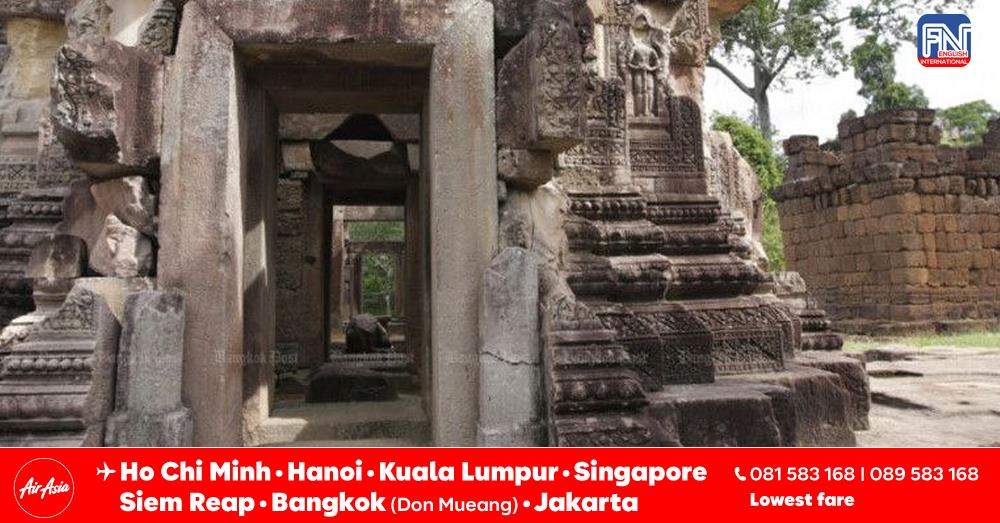BANGKOK, May 3 (Bangkok Post) – Military officials from Thailand and Cambodia held talks on Friday to reduce tensions after both governments agreed to withdraw their troops from Prasat Ta Muen Thom, an ancient Khmer temple, in Surin province.
The site was reopened at the start of March after it was temporarily closed due to a group of Cambodians spotted there on Feb 13 singing a nationalist song, a symbolic activity, which is prohibited.
Deputy Prime Minister and Defence Minister Phumtham Wechayachai provided a briefing after a General Border Committee (GBC) meeting in Bangkok on Thursday, stating that the discussion was about reducing tensions on the border near the ruined temple. The meeting was also attended by Cambodian Minister of National Defence Tea Seiha.
Mr Phumtham confirmed both sides had agreed to pull back troops to their previous positions and exercise restraint. The communication occurred on a government-to-government level. Armed forces chiefs from both sides also discussed the issue, he said. This was merely a de-escalation of tension and not any indication of Thailand's claim to the site somehow weakening, he noted.
A source from the 2nd Army Region said the talks were held on Friday with Cambodian military officials to prevent clashes in border areas, including those near the ancient temple in Surin and Chong Bok in Ubon Ratchathani province.
Previously, under a bilateral agreement, both sides were to maintain a five-kilometre buffer zone at these disputed areas.
However, both militaries later deployed forces to secure the territories. Talks resulted in both sides agreeing to withdraw to their original positions in line with the outcomes of the GBC meeting on Thursday, said the source.
The source added that the 2nd Army Region is ready to follow the policy direction of the defence minister and is currently in discussions with Cambodia to ensure coordinated implementation. Should either side fail to comply, it will be reported to their respective superiors.
As for the case of Ta Muen Thom Temple, built in the 13th century by King Jayavarman VII of the Khmer Empire, in Surin province, it remains Thai territory, and Thai troops are carrying out their duties as usual, the source said.
Nantiwat Samart, a former secretary-general of the Foreign Ministry and ex-deputy director of the National Intelligence Agency, meanwhile, questioned the rationale behind the decision to withdraw the troops. He said Thai forces were merely protecting the country's territory and assets.
Mr Nantiwat said on social media that the retreat could be seen as Thailand surrendering its claim to the temple.
Prior to the GBC meeting, activist groups -- including the Network of Students and People for Reform of Thailand (NSPRT), the Dharma Army and the People's Centre to Protect the Monarchy -- rallied outside the meeting venue. Led by NSPRT leader Phichit Chaimongkol, they submitted a letter to the Supreme Commander of the Armed Forces, Gen Songwit Noonpakdee, urging the military to defend Thai sovereignty vigorously.
Mr Phichit said any disadvantageous outcome from the negotiations led by Mr Phumtham would not be tolerated, and that the Paetongtarn government is too focused on what it can gain, even at the risk of national sovereignty.
A representative of Gen Songwit, who received the letter, said the meeting also addressed broader issues, such as drug trafficking, transnational crime, call-centre scams and cross-border economic development.
For border issues, further discussions will need to take place during the Joint Boundary Committee meeting, as there are technical matters involved, he said.





